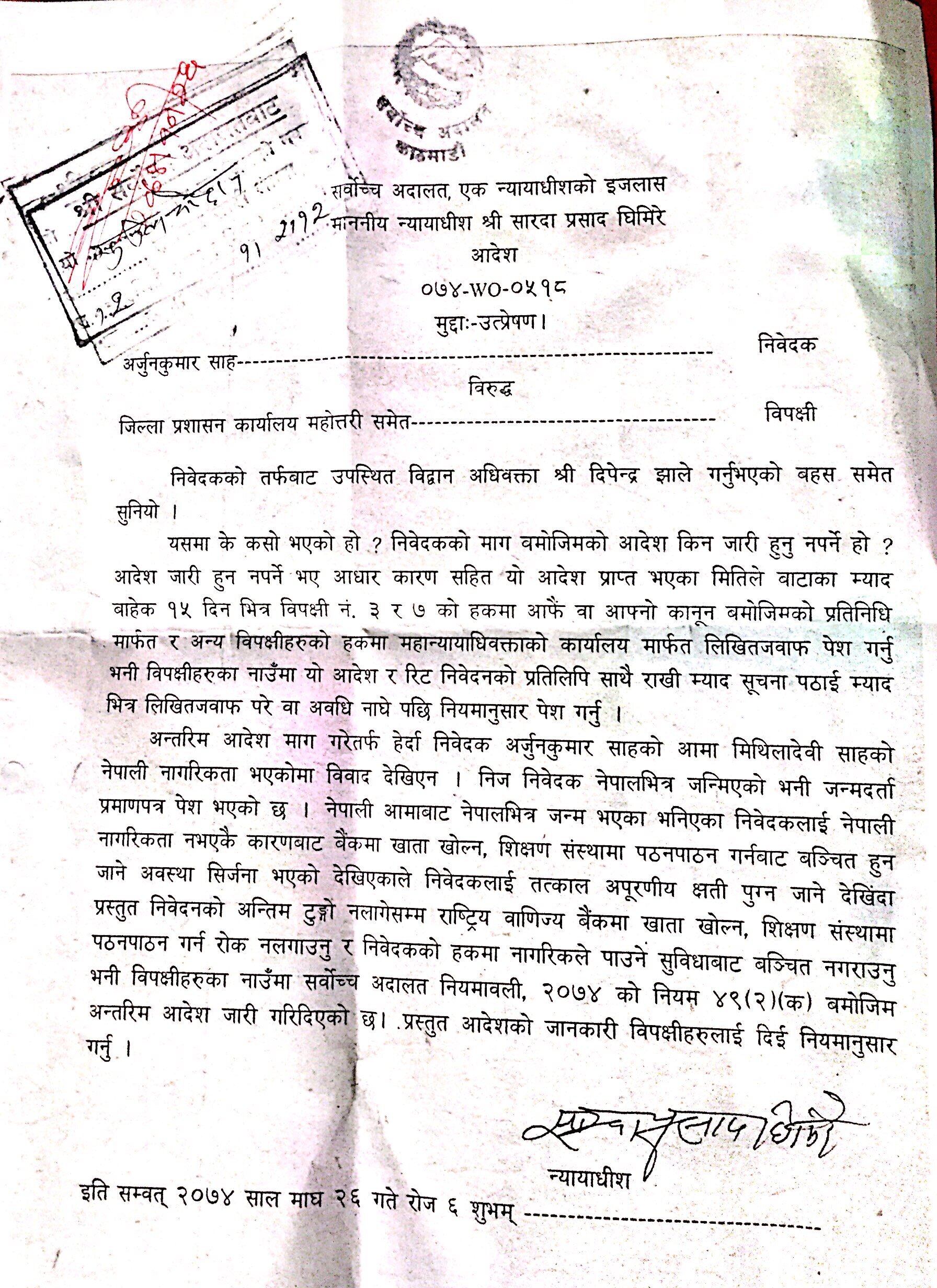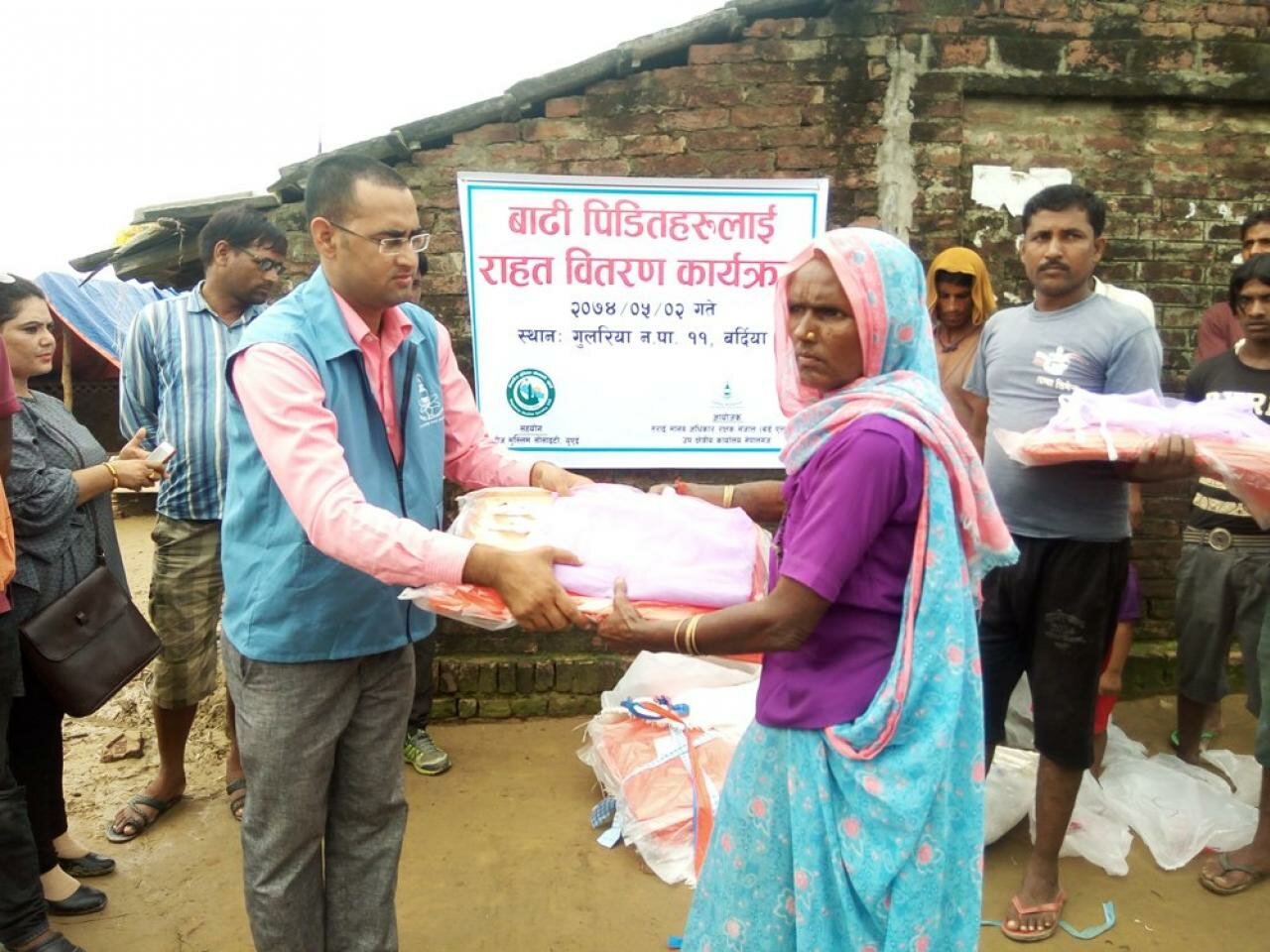“I don’t have a citizenship certificate. How could I get my daughter’s birth registered?” Arjun Sah, a local of Mahottari district, wrote on his Facebook status a few days ago.
For her enrollment, the school teacher had asked for her birth certificate for the enrollment. But the ward chairperson had responded that her birth certificate cannot be made unless her father has the citizenship, as per his Facebook post.
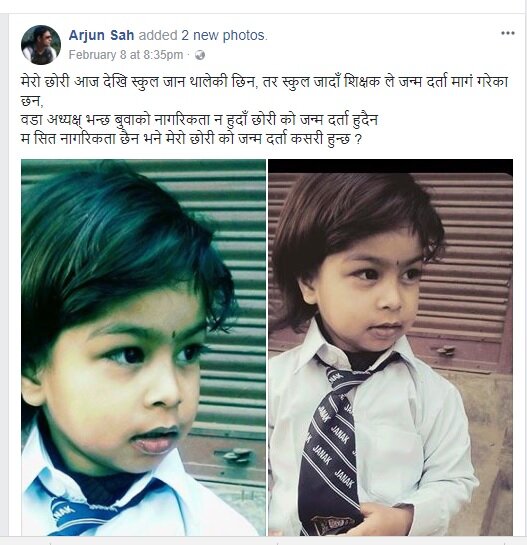
Stateless for past 26 years, Arjun posted his facebook status in despair, asking for help.
Five years ago, he had filed a writ to the Supreme Court to demand the citizenship certificate. The case was subjudice until he filed the writ petition again to the apex court. Earlier, his writ petition demanded for the citizenship by descent while the latter he demanded for the citizenship by naturalisation with the change in the provisions related to the citizenship in the country’s constitution promulgated in 2015.
Without citizenship, he was neither able to open a bank account and get the driving licence nor do many of those works which required to prove his nationality. Last month, he was fired from the job since he did not possess the citizenship certificate.
Arjun was already exhausted with the long justice process at the Supreme Court. The school denied to enroll his daughter on 8 February 2018, he turned completely helpless and had no other option than turning to social media for help.
The next day, Terai Human Rights Defenders Alliance (THRD Alliance) provided him legal assistance to file a writ petition to the Supreme Court demanding the citizenship certificate. He also urged the court to issue an interim order in his favour until the final hearing of the case. He had also demanded that a writ of mandamus be issued to Parliament telling it to enact new laws and regulation to help people acquire citizenship without any legal hassles. The petitioner had named the Office of the Prime Minister and Council of Minister, Ministry of Home Affairs and District Administration Office, Mahottari the defendants, among others.
In response to the writ petition, the Supreme Court on 9 February 2018 issued an interim order to the government telling it not to deprive Arjun to open bank accounts, enroll in educational institutions and exercise his rights that all other citizens are entitled to.
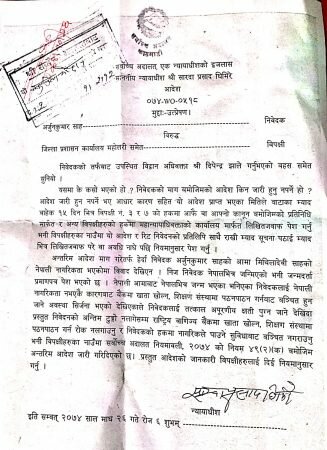
A single bench of Justice Sarada Prasad Ghimire of the Supreme Court issued an order to the government. The bench said that it was issuing interim order as not doing so would cause an irreparable loss to the petitioner. The apex court also issued a show cause notice to the defendants. The defendants will have to furnish their written replies within 15 days.
As per the writ, the petitioner’s mother was a Nepali national and since he was born in Nepal and went to school in Nepal as a domicile of Nepal, he should acquire naturalised citizenship. His father, who was originally from India, had been living in Nepal for 38 years but did not have citizenship of any country.
The Constitution of Nepal 2015, in Article 11 (6), stipulated that the citizenship of a child born to a Nepali mother will be converted to naturalised citizenship if his/her father is found to be a foreigner.
But when Arjun went to get a recommendation letter from Matihani Ward Office-8, the officers refused to issue him a recommendation letter, saying that a new law had not been enacted to address the problems of people like him.
There are still many people like Arjun in the country, who are eligible for naturalised citizenship but the government authorities designated for issuing the citizenship deny them citing the absence of the new citizenship law.
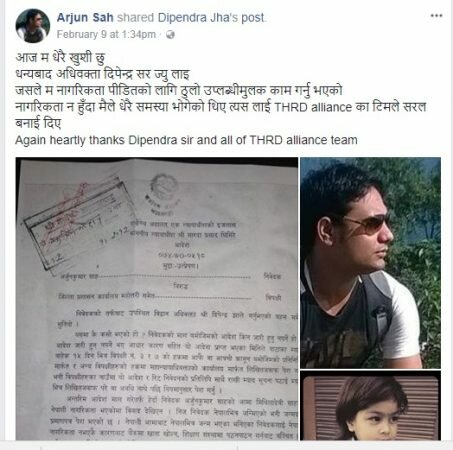
This means those who are eligible for the naturalised citizenship cannot get the citizenship certificate despite the constitutional provisions. Sub-article 5, 6, and 7 under the Article 11 of Constitution makes the provision of the Federal Law mandatory for acquiring naturalized citizenship of Nepal.
Although the Supreme Court’s final hearing in Arjun’s case has yet to take place, the court’s interim order can be applied for those who are struggling for citizenship and are deprived of their constitutional rights..
Concerned authorities must heed to remove the legal hassles to help people get citizenship and ensure their rights.

